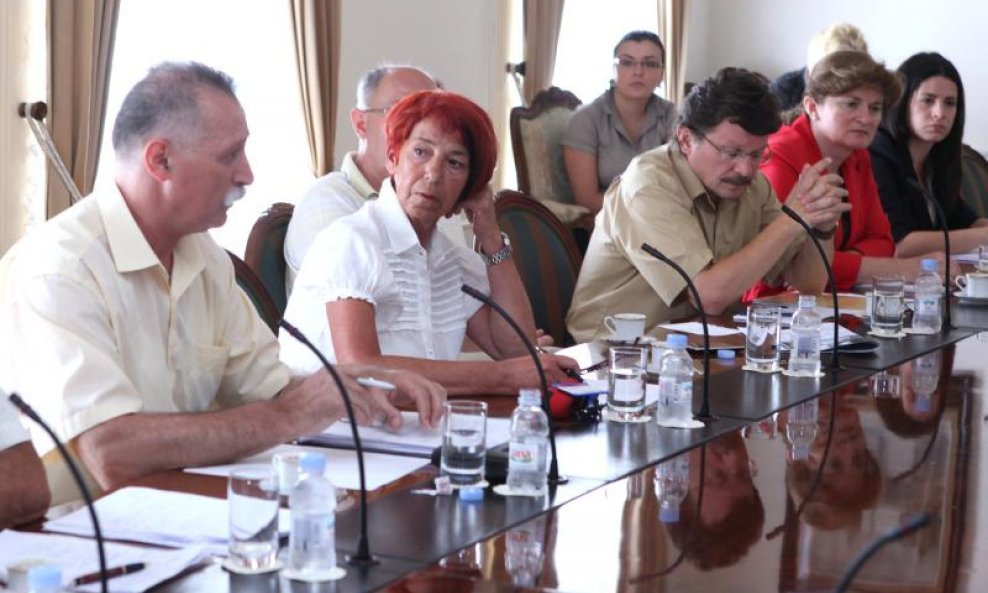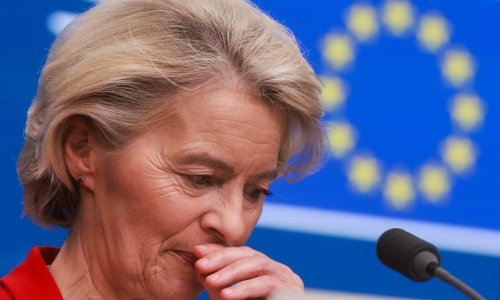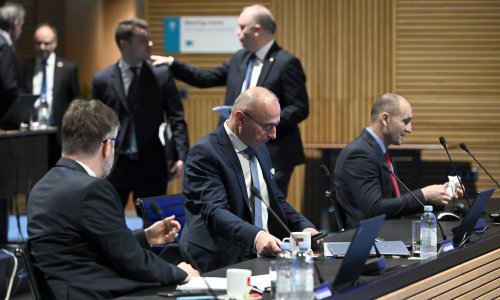Negotiations between the government and the public-sector unions on amending the Basic Collective Agreement for the public services definitely failed on Monday after four of the eight unions refused to sign the annex to the agreement, so that the fate of the document would be decided by arbitration.
The negotiations failed because the leaders of the unions of primary school teachers, secondary school teachers, university lecturers and scholars, and nurses refused to the sign the annex to the Basic Collective Agreement unless the government guaranteed them the retroactive payment of entitlements they were to have waived for the time being.
Labour and Pension Minister Mirando Mrsic said that the government was ready to negotiate on a new Basic Collective Agreement with all present rights next year, but that it could not accept the obligation of retroactive payment of entitlements.
The government today proposed signing the new annex in which it would undertake to open negotiations next year on reinstating those entitlements provided the economy has recovered, but the four unions insisted on their demand for the repayment of their entitlements as soon as the crisis is over, Mrsic said.
An arbitration panel will decide whether the annex signed by the four other unions (health workers, medical doctors, cultural workers, and social welfare workers) is valid for all the public services. If it renders a negative ruling, the government has announced earlier that it will launch a procedure for the termination of the Basic Collective Agreement and will cut the salaries of public-sector workers by 10 per cent in order to preserve the stability of the budget, in which 21.6 billion kuna is set aside for civil servants and public-sector employees.
Mrsic said that the government would do its best not to cut salaries by 10 per cent and to preserve jobs in the public sector, reiterating that the government would not go beyond the budget for civil servants because that would bring down the country's credit rating.
Representatives of the four unions that rejected the annex to the Basic Collective Agreement said that all the entitlements should be paid to their members at a later date and that in any other case their members should vote on it in a referendum.
Union leader Vilim Ribic said that the public-sector employees were "extremely underpaid" and that 10.5 per cent of their pay had already been consumed by inflation since the start of the crisis.
Spomenka Avbersek, a representative of the unions that had signed the annex to the agreement, accused the union leaders headed by Ribic of stubbornness, saying that 180,000 public-sector workers could be left without a collective agreement and with lower salaries that the government would determine through regulations.
According to earlier statements, the arbitration is expected to be conducted this week; it would involve two representatives of the government, two representatives of the unions and an independent arbitrator, and their ruling will be considered final and will be binding on all parties.



































